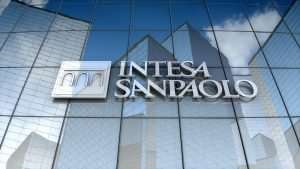Ceo, Carlo Messina, puts more than 3 billion in five years into helping the weakest, a concrete response to politics, competitors and private companies. Immediate raises for 100,000 employees
by Giulio Talarico

The big difference by Carlo Messina: in complex times of wars and inflation, one of Europe’s largest and most solid banks directly puts over 1.5 billion in aid to the weakest in five years and another 1.6 billion through the shareholder foundations, which use the dividends received from the bank’s good results for this purpose. An effort that has no equal in Italy in either the public or private sector, not least because it is not enough to allocate such sums but, above all, it takes the dedicated people (one thousand) who take care of it, and it takes the sharing of the entire Intesa community, one hundred thousand employees united by the DNA of the value of solidarity as a distinctive and driving element of the bank’s very identity.
A DNA that Messina has instilled into the deepest fabric of the bank as the social engine of its financial results and that has also received the praise of Pope Francis, who addressed a personal message to Intesa Sanpaolo’s number one through Sister Alessandra Smerilli, secretary of the Vatican’s Dicastery for the Service of Integral Human Development.
And in order to explain the big difference between a so to speak normal bank and his own, he preferred to bring together not financial analysts, who are, moreover, very familiar with the bank’s accounts, but the protagonists of the third sector and solidarity to give an effective picture of the needs of the weakest on the one hand and the bank’s initiatives to help them on the other.
Thus, in Brescia, with Giovanni Bazoli, emeritus president of the institute, Giuseppe Guzzetti, president of Fondazione Cariplo, and Enrico Salza representing Compagnia San Paolo (together with the presidents of the other shareholder foundations) in the front row, for the first time in Italy, a reading that was markedly different from the usual reading of finance, and also from that of politics (which is often unable to make deeds follow words), was aired.


Messina also dedicated an important space to Intesa’s 100,000 employees, the operational force that drives both results and concrete attention to social issues: salary increases (EUR 435) will be paid immediately, regardless of the timing of union negotiations at ABI, and, above all, no one will have to be harmed by the strong push that the company is giving to technology and artificial intelligence: “as long as I remain here, and I want to remain here for a long time, no one will have to fear leaving,” said Intesa’s CEO in his words.
Lando Sileoni, head of Fabi (the most important trade union in the sector), immediately appreciated. And Giovanni Bazoli, the chairman emeritus who has worked from the beginning on the bank’s great growth, made no secret of the fact that he was moved by the social commitment of the ‘Intesa institution’, as Carlo Messina rightly defined the overall positioning of Italy’s leading bank.
(Associated Medias) All rights are reserved

